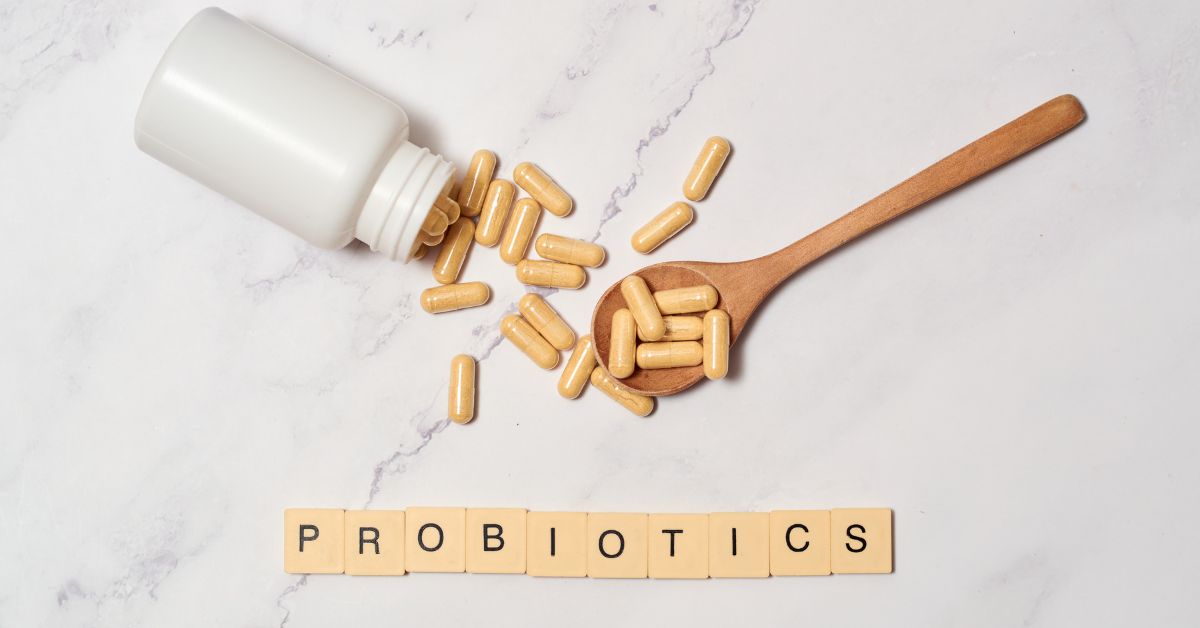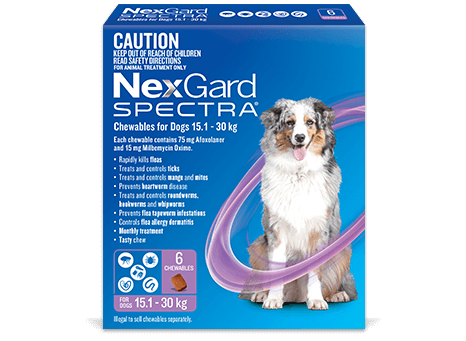Ensuring your dog has a healthy gut is crucial for their overall well-being. Probiotics and prebiotics play an essential role in maintaining a balanced gut microbiome, which can lead to numerous health benefits.
In this post, we’ll explore the advantages of these beneficial microorganisms for dogs, how to choose the right supplements and the best ways to incorporate them into your dog’s diet.
Introduction
Probiotics and prebiotics are buzzwords in the world of canine nutrition, but what do they really mean for your dog’s health?
Understanding the science behind these supplements can help you make informed decisions about your pet’s diet and wellness routine.
Let’s dive into the details and see why these tiny organisms pack such a big punch.


What Are Probiotics and Prebiotics?
Probiotics and prebiotics are essential components in maintaining your dog’s gut health. Probiotics are live microorganisms that offer health benefits when consumed in adequate amounts.
Prebiotics, on the other hand, are types of dietary fibre that feed the friendly bacteria in your dog’s gut.
Understanding Probiotics
Probiotics are live bacteria and yeasts that are beneficial to your dog’s health, especially their digestive system. Often referred to as “good” or “friendly” bacteria, probiotics help keep the gut flora balanced. They are naturally found in the body but can also be supplemented through food and products designed to enhance gut health.
Understanding Prebiotics
Prebiotics are non-digestible food ingredients that promote the growth of beneficial microorganisms in the intestines. They act as food for probiotics, helping these beneficial bacteria thrive.
Common prebiotics include fibres like inulin and fructooligosaccharides (FOS), which can be found in various fruits, vegetables, and grains.
Key Differences Between Probiotics and Prebiotics
While probiotics are live bacteria that add to the population of good bacteria in your dog’s gut, prebiotics are a type of fiber that feed these good bacteria.
Together, they create a synergistic effect that supports a healthy gut environment, aiding in digestion, nutrient absorption, and immune function.
Health Benefits of Probiotics for Dogs
Probiotics offer a range of health benefits for dogs, from improving digestive health to boosting the immune system.
These live microorganisms help maintain a balanced gut microbiome, which is crucial for your dog’s overall health.
Improving Digestive Health
Probiotics help regulate the balance of bacteria in the gut, which can prevent and alleviate digestive issues such as diarrhea, constipation, and bloating.
By promoting a healthy gut flora, probiotics ensure that your dog’s digestive system functions smoothly.


Boosting the Immune System
A significant portion of the immune system is located in the gut. Probiotics enhance the gut’s immune response by increasing the production of natural antibodies and boosting the activity of immune cells.
This helps protect your dog from infections and diseases.
Enhancing Skin and Coat Health
Probiotics can improve your dog’s skin and coat by reducing inflammation and supporting the body’s natural defences against allergens.
A balanced gut microbiome can lead to healthier skin and a shinier coat, making your dog look and feel better.
Supporting Behavioral and Mood Health
The gut-brain axis is a complex communication network that links the gut and the brain.
Probiotics can positively affect your dog’s mood and behaviour by promoting a healthy gut microbiome.
This can help reduce anxiety and improve overall well-being.
Health Benefits of Prebiotics for Dogs
Prebiotics are just as important as probiotics when it comes to maintaining your dog’s gut health.
These dietary fibres serve as food for the beneficial bacteria in the gut, helping them grow and function effectively.
Promoting Gut Flora Balance
Prebiotics help maintain a healthy balance of gut flora by providing nourishment for the beneficial bacteria. This supports overall digestive health and prevents the overgrowth of harmful bacteria.
Supporting Digestive Health
By feeding the good bacteria in the gut, prebiotics enhance the digestive process and improve nutrient absorption. This can lead to better digestion and a healthier gut environment for your dog.
Enhancing Nutrient Absorption
Prebiotics improve the efficiency of nutrient absorption by promoting a healthy gut lining. This ensures that your dog gets the maximum benefit from their food, leading to better overall health and vitality.
Types of Probiotics and Prebiotics for Dogs
There are various types of probiotics and prebiotics available for dogs, each offering unique benefits. Understanding these types can help you choose the right supplement for your furry friend.


Common Strains of Probiotics
Some of the most common probiotic strains for dogs include Lactobacillus acidophilus and Enterococcus faecium. These strains are known for their ability to improve gut health and boost the immune system.
Natural Sources of Probiotics
Probiotics can be found in natural sources such as yogurt (lactose-free), fermented vegetables like sauerkraut and kimchi, and green tripe.
These foods can be included in your dog’s diet to promote a healthy gut microbiome.
Common Sources of Prebiotics
Prebiotics are found in a variety of foods, including vegetables, fruits, and grains. Common sources include chicory root, bananas, and oats.
Incorporating these foods into your dog’s diet can help support their gut health.
Choosing the Right Supplement
With so many probiotic and prebiotic supplements available, it can be challenging to choose the right one for your dog. Here are some factors to consider when selecting a supplement.
Factors to Consider
When choosing a probiotic or prebiotic supplement, look for products with a high CFU (Colony Forming Units) count, multiple strains of bacteria, and no artificial additives.
It’s also important to select a product that is easy to administer and suits your dog’s specific needs.
Recommended High-Quality Products
Some high-quality probiotic supplements for dogs include Purina Pro Plan FortiFlora, ZamiPet Dog High Strength Probiotics, and EAC Animal Care In-Sideout Pre and Probiotic Nutraceutical Supplement.
These products are backed by scientific research and have been shown to provide significant health benefits.
Administering Probiotics and Prebiotics
Once you’ve chosen the right supplement, it’s important to administer it correctly to ensure your dog gets the maximum benefit. Here are some tips on how to do that.


Supplement Forms and Their Benefits
Probiotics and prebiotics come in various forms, including powders, capsules, and chews. Powders can be easily mixed into your dog’s food, while capsules and chews can be given as treats.
Choose a form that is convenient for you and palatable for your dog.
Dosage Guidelines
Follow the dosage instructions provided by the manufacturer or your veterinarian. The dosage may vary based on your dog’s size, age, and health condition.
It’s important to start with a lower dose and gradually increase it to allow your dog’s system to adjust.
Incorporating Supplements into Daily Routines
To ensure consistency, incorporate the supplements into your dog’s daily routine.
This can be done by adding the supplement to their meals or giving it as a treat at the same time each day. Consistency is key to achieving the best results.
Potential Side Effects and Considerations
While probiotics and prebiotics are generally safe, it’s important to be aware of potential side effects and considerations. Here’s what you need to know.
Common Initial Side Effects
Some dogs may experience initial side effects such as increased gas, bloating, or changes in stool consistency.
These symptoms are usually temporary and should resolve as your dog’s system adjusts to the new supplement.
Managing Side Effects
If your dog experiences side effects, try reducing the dosage and gradually increasing it.
Ensure they have access to plenty of water and monitor their condition closely. If symptoms persist, consult your veterinarian.


Consulting with a Veterinarian
Before starting any new supplement, it’s advisable to consult with your veterinarian. They can provide guidance on the appropriate supplement and dosage for your dog’s specific needs.
Your vet can also help monitor your dog’s progress and adjust the plan as necessary.
Conclusion
Probiotics and prebiotics offer numerous health benefits for dogs, from improving digestive health to boosting the immune system.
By understanding the importance of these beneficial microorganisms and choosing the right supplements, you can help your dog achieve optimal health and well-being.
Incorporate these powerful allies into your dog’s diet and watch them thrive.









